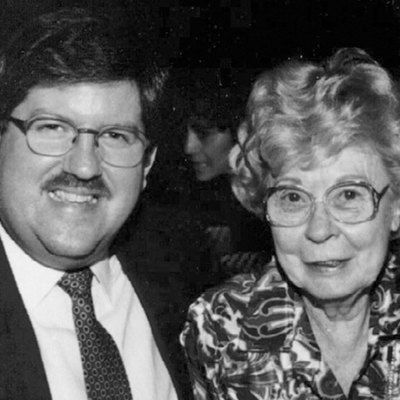In the Pit With the Fighting Roosters
A massive raid on a long-running cockfighting ring in Arkansas has raised complex questions about ICE, immigration, and the future of a centuries-old tradition.
Showing 25 articles matching fk33.cc_Magnesium Sulfate heptahydrate large granules Factory in China.
A massive raid on a long-running cockfighting ring in Arkansas has raised complex questions about ICE, immigration, and the future of a centuries-old tradition.
David Hill The Ringer Jul 2018 35min Permalink

The excerpts from a diary of an anonymous Russian special-forces officer who served twenty tours of duty in Chechnya during the Second Chechen War (1999-2009).
Anonymous The Sunday Times Oct 2010 15min Permalink
He was a convicted felon who found a niche in Seattle’s construction boom. As the region’s fortunes rose and fell—and rose again—so did his. Then a fatal boating accident came for Michael Powers’s fairy-tale ending.
James Ross Gardner Seattle Met Aug 2109 30min Permalink

A charming assistant funeral home director named Bernie Tiede murders a wealthy widow, keeps her in a freezer for months, finally gets caught, and still has the town's sympathy as his case goes to trial. The story that became Richard Linklater's Bernie.
Skip Hollandsworth Texas Monthly Jan 1998 20min Permalink

“Peril is generational for black people in America—and incarceration is our current mechanism for ensuring that the peril continues.”
Ta-Nehisi Coates The Atlantic Sep 2015 1h20min Permalink
As the U.S. heads toward the winter, the country is going round in circles, making the same conceptual errors that have plagued it since spring.
Ed Yong The Atlantic Sep 2020 20min Permalink
Residents have lived near more than 100 massive petroleum storage tanks for decades, never really knowing if they’re breathing in dangerous chemicals. Now they’re fighting to find out.
Kathryn Miles Boston Globe Magazine Jun 2021 15min Permalink
The Charleston-based evangelicals had much in common: guns, God, Trump. What went wrong, only one of them could say.
Alice Robb Vanity Fair Sep 2021 25min Permalink

The inspiration for Boogie Nights, how Jerry Lee Lewis got away with murder and the article that prompted this week’s cover — a collection of great crime reporting published by Rolling Stone.
“Brace Belden can’t remember exactly when he decided to give up his life as a punk-rocker turned florist turned boxing-gym manager in San Francisco, buy a plane ticket to Iraq, sneak across the border into Syria, and take up arms against the Islamic State. But as with many major life decisions, Belden, who is 27 — “a true idiot’s age,” in his estimation — says it happened gradually and then all at once.”
Reeves Wiedeman New York Apr 2017 25min Permalink
A conversation with Vasily Gotov:
"Russia undoubtedly celebrated the reports in American media about its activities. They want to instill doubt. They want to be part of the agenda. They want to penetrate our media culture. Russian penetration is dramatically overstated in American media, but that only serves them better. It creates the impression that they're more powerful than they are. That discussions like this are necessary at all is a tremendous win for Russia."
Sean Illing Vox Dec 2016 10min Permalink

The last breaths of pop music, memories of having a stroke and the war over Airbnb in New York — the most-read articles this week in the new Longform App, available free for iPhone and iPad.
The end of the rock star era.
David Samuels n+1 Sep 2014
“When I woke up hours later, I really believed I had been in those mountains hiking — that it was not a dream. And I really had lost my voice. I had lost my words. I was unable to say, ‘I am trapped in my brain’ or, ‘My memories are mixing with imagination.’”
Christine Hyung-Oak Lee Buzzfeed Sep 2014 20min
When Carmen Segarra was hired to examine Goldman Sachs for the New York Fed, she bought a small recorder and began taping her meetings. Here is what she found before she was fired.
Jake Bernstein ProPublica Sep 2014 25min
Sam Simon made a fortune from The Simpsons. Now, diagnosed with terminal cancer, he is racing to spend it.
Merrill Markoe Vanity Fair Sep 2014 25min
The war over Airbnb gets personal.
Jessica Pressler New York Sep 2014 25min
Sep 2014 Permalink

<img src="http://longform.org/stuff/images/seven-month-old-twins-615.jpg" title=“babies and babies" class="bleed" alt=“”>The rise and murderous fall of a pecan dynasty in Texas, the inside story of how Marissa Mayer lost her way at Yahoo! and why a baby’s brain needs love to develop — the most read articles this week in the Longform App, available free for iPhone and iPad.
Notes on consuming a novel.
The rise and murderous fall of the Harkey family, the scions of a pecan dynasty.
Sonia Smith Texas Monthly 35min
The inside story of how Yahoo’s C.E.O. lost her way.
A baby’s brain needs love to develop.
Michael Brown beat the odds by graduating from high school before his death—odds that remain stacked against black students in St. Louis and the rest of the country.

The laborers who keep dick pics out of your Facebook feed, the geneticists who could help contain Ebola, and the shame of having poor teeth in a rich world — the most read articles this week in the new Longform App, available free for iPhone and iPad.
The grim world of outsourced content moderation.
Adrian Chen Wired 15min
A profile of Nicki Minaj.
Taffy Brodesser-Akner GQ 15min
Life in America without dental care.
Sarah Smarsh Aeon 15min
“The term douchebag, again used as we already use it, has the power to name white ruling class power and white sexist privilege as noxious, selfish, toxic, foolish, and above all, dangerous.”
Michael Mark Cohen Gawker 10min
The author of The Hot Zone on how geneticists can help contain the current outbreak.
Richard Preston New Yorker 40min
“When I’m in Nigeria, I find myself looking at the passive, placid faces of the people standing at the bus stops. They are tired after a day’s work, and thinking perhaps of the long commute back home, or of what to make for dinner. I wonder to myself how these people, who surely love life, who surely love their own families, their own children, could be ready in an instant to exact a fatal violence on strangers.”
Teju Cole The Atlantic Oct 2012 15min Permalink
Few men have acquired so scandalous a reputation as did Basil Zaharoff, alias Count Zacharoff, alias Prince Zacharias Basileus Zacharoff, known to his intimates as “Zedzed.” Born in Anatolia, then part of the Ottoman Empire, perhaps in 1849, Zaharoff was a brothel tout, bigamist and arsonist, a benefactor of great universities and an intimate of royalty who reached his peak of infamy as an international arms dealer -- a “merchant of death,” as his many enemies preferred it.
Mike Dash Smithsonian Feb 2012 Permalink
Transcript of the 1969 Montreal “bed-in.”
JOHN: How long have you been there, in the teepee? I mean, before you sussed the wind and everything, and you know, got your senses back? ROSEMARY: We had to put the teepee up three times before it was right. It’s like you can touch it, and it resounds like a drone, and then it’s perfect, the canvas. It’s a wind instrument that plays like a drone.
Timothy Leary Archives Jun 2012 15min Permalink
This isn't an essay or simply a woe-is-we narrative about how hard it is to be a black boy in America. This is a lame attempt at remembering the contours of slow death and life in America for one black American teenager under Central Mississippi skies. I wish I could get my Yoda on right now and surmise all this shit into a clean sociopolitical pull-quote that shows supreme knowledge and absolute emotional transformation, but I don't want to lie.
Kiese Laymon Cold Drank Jul 2012 20min Permalink
Rosie grew up in a succession of decrepit houses in South London with one man and a rotating cast of women, who claimed that they had found her on the streets as an infant. The man, Aravindan Balakrishnan—Comrade Bala, as he wanted to be called—was the head of the household. He instructed the women to deny Rosie’s existence to outsiders, and forbade them from comforting her when she cried.
Simon Parkin New Yorker Dec 2016 10min Permalink
As the snow tires rumbled on the highway beneath us, a neo-Nazi "troll army" was several days into attacking the Jewish people of Whitefish on Spencer's behalf, based on a belief that some Whitefish Jews had recently tried to run Spencer and his mother out of town. Details about what actually happened between the town and the Spencers were in short supply, and, among the neo-Nazi troll brigades, anti-Semitism was in abundance.
Eli Sanders The Stranger Jan 2017 25min Permalink
Not available in full:
“Death Sentence” (Timothy Bolger • Long Island Press)
“A Design for Healing” (Melissa Harris • The Chicago Tribune)
“A Killing in Cordova: The Trial and Tribulations of Harry Ray Coleman” (Graham Hillard • Memphis Magazine)
“Taxpayers’ $8.4 million Spent on Doomed Project” (Mike Morris • Houston Chronicle)
Frozen fish from the supermarket often has excess ice — and consumers pay the price.
Inside New Jersey’s halfway houses.
After the 2001 terrorist attacks, California lawmakers sought a way to channel the patriotic fervor and use it to help victims, families and law enforcement. Their answer: Specialty memorial license plates emblazoned with the words, “We Will Never Forget.”
The anatomy of a sex abuse scandal at a Christian school in Oklahoma.
Kiera Feldman This Land 55min
Police force fails to protect the state’s most vulnerable residents.
A son’s secret brings a Southern Baptist minister to his knees.
How Earl Eugene Mawyer got a chance to be a hero.
On the “toxic legacy” of Anniston, Alabama.
At 24, Ray Wauson was thrilled to land a job as an armored-car guard. But he was entering an unregulated world in which the people guarding the cargo are often defenseless against the cargo itself.
How faulty data lowered Milwaukee’s crime rate.
City cameras track anyone, even Minneapolis Mayor Rybak.
On homeless sex offenders in metro Phoenix.
A year-long examination of the abuse investigations of unlicensed youth reform programs that operate in Florida and are overseen by the Florida Association of Christian Child Caring Agencies, a private, nonprofit group.
Drones, renditions, and underground prisons; inside the war on terror’s African front.
In the eighteen years since the infamous “Black Hawk Down” incident in Mogadishu, US policy on Somalia has been marked by neglect, miscalculation and failed attempts to use warlords to build indigenous counterterrorism capacity, many of which have backfired dramatically. At times, largely because of abuses committed by Somali militias the CIA has supported, US policy has strengthened the hand of the very groups it purports to oppose and inadvertently aided the rise of militant groups, including the Shabab.
Jeremy Scahill The Nation Aug 2011 15min Permalink
The author expounds on culture and crime in the early 90s:
Yes, I know there are sensational tabloid crimes everywhere and the closeness to the Manhattan media nexus tends to magnify everything. But even so, that was always true. There's just no denying that something has changed in the past decade, that, as our bard Billy Joel sings on his new album, there's "lots more to read about, Lolita and suburban lust." But why? Why is this Island different from all other islands? And why are so many Long Islanders suddenly running amok?
Ron Rosenbaum New York Times Magazine Aug 1993 30min Permalink
On being gay in the military, three years before Don’t Ask, Don’t Tell:
A vast majority of those interviewed had been interrogated at least once, and what they described was nearly the same. They said those under suspicion of homosexuality suffer bright lights in their eyes and sometimes handcuffs on their wrists, warnings that their parents will be informed or their hometown newspapers called, threats that their stripes will be torn off and they will pushed through the gates of the base before a jeering crowd.
Jane Gross New York Times Apr 1990 10min Permalink
A pilgrimage to J.D. Salinger’s New Hampshire home:
The silence surrounding this place is not just any silence. It is the work of a lifetime. It is the work of renunciation and determination and expensive litigation. It is a silence of self-exile, cunning, and contemplation. In its own powerful, invisible way, the silence is in itself an eloquent work of art. It is the Great Wall of Silence J.D. Salinger has built around himself.
Ron Rosenbaum Esquire Jun 1997 35min Permalink